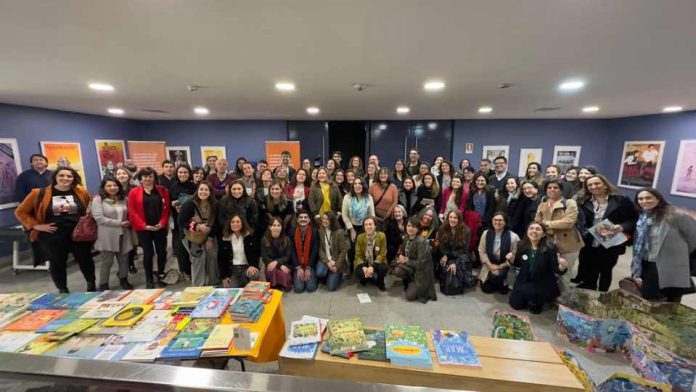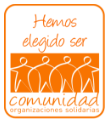Established in December 2022, the initiative addresses learning gaps in reading. Currently, organizations from all over Chile are part of the network, which held its fourth meeting this Tuesday at the La Moneda Cultural Center, where different institutions shared their experiences and addressed the challenges that the network will face in the future.

With the presence of more than 40 organizations that are part of the alliance[CAF(C1] and more than 90 attendees, the fourth meeting of the Network "For a Chile that Reads" was held, an initiative that seeks to contribute with proposals to address the learning gaps in reading among students and is preparing to become a corporation with the objective of formalizing itself as an organization.
In addition to giving an account of the work carried out by the seven working groups that make up the network, the focus of the meeting - held at the La Moneda Cultural Center - was to reflect on and define the future challenges that this alliance must face and how to have a concrete impact on the reading levels of the country's children. Thus, some of the roundtables are already working on the generation of instruments that allow the measurement and evaluation of different aspects of reading in students in early stages.
Among the initiatives being worked on by the network are the creation of a reading teaching manual for pedagogical schools and the development of instruments to measure reading fluency, with the intention of piloting it with students. In addition, the initiative led the massive campaign "1000 photos, 1000 readings to share".
Carolina Andueza, president of the Executive Committee of "For a Chile that Reads" and executive director of the CMPC Foundation, highlighted the importance of the network and of these meetings to define the road map and the resources to be used. "The truth is that there is a historical debt with the reading of children and adolescents in Chile, but now we are in an even more critical situation after the pandemic. We want to set ourselves up as a corporation and, through this legal personality, access funds, memberships and financing to be able to project ourselves with long-term sustainability and thus be able to promote new initiatives, seminars, manuals. The idea is to be able to share all the knowledge that is installed in each of these organizations and transform it into collective knowledge as a country". Currently the network "For a Chile that Reads" is made up of more than 120 organizations from all over the country.
For her part, the coordinator of the Education area of Fundación Olivo, Constanza Severín, who is also part of the Financing and Alliances Committee of "For a Chile that Reads", explained that "this network in particular has been very broad and democratic. Tables have been formed according to the themes and objectives of each of the organizations and this has meant the creation of new tables. This has led to many motivations, because many institutions from different fields are convened and the central objective is very clear. That is why it is sustained over time".
The meeting also included the panels "Reading Experiences" and "The tables talk". In the first, the foundations AraucaníAprende, Belén Educa, Alma and La Fuente, shared their learning in this area and then moved on to the second discussion, in which different actors of the Network were able to present the future challenges faced by the organization, among them, to establish a mechanism to know where the most urgent cases of children with problems in learning to read are, strengthen public-private work, position "For a Chile that Reads" as a national reference in reading and materialize the initiatives in the classroom that are developed in the network.
The objective of the initiative and of these meetings is to continue the work of generating synergies and initiatives to ensure that children understand what they read and enjoy reading. The event took place at the La Moneda Cultural Center, after three previous meetings at the Center for Advanced Research in Education (CIAE) of the University of Chile, at the Catholic University and at the University of the Andes.





